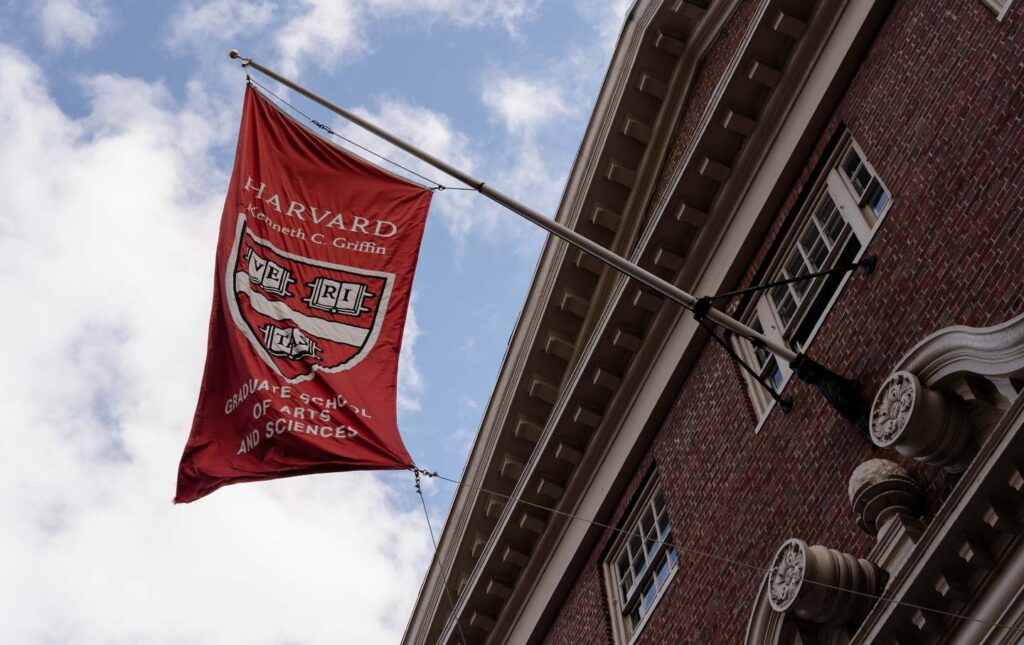April 28, 2025
We Don’t Have to Hand It to Harvard
By Phoebe Grandi
The university’s lawsuit against the Trump administration was widely celebrated, but our school has been quietly complying with federal demands around Palestine for weeks.
Christopher Malley and Nathaniel Moses

These dark times for higher education must be seen as a threat to the rigorous independence of US universities. Over the past few months, under pressure from the Trump administration, right-wing conspiracists, and conservative elements within their bureaucracies, universities have repressed free expression and critical scholarship—most notably on Israel’s ongoing genocide in Gaza.
But in a widely publicized letter sent earlier this month, the Trump administration appeared to have gone one step too far. The Department of Education issued a slew of extreme demands to Harvard University—including the elimination of all diversity, equity, and inclusion programs, overhaul of its disciplinary procedures, and submission to audit by federal regulators, all in order to “maintain [its] financial relationship with the federal government.”
Harvard President Alan Garber’s response, in which he decried these most recent government efforts to regulate so-called “intellectual conditions,” won instant acclaim, with many relieved to see a university stand up to the Trump administration. The university’s move, taken together with an ambitious fundraising campaign and a lawsuit announced on April 21 against the federal government’s funding freeze, has been lauded as a new, combative stance that other universities ought to emulate.
What this celebration has missed, however, is that Harvard has been quietly complying with Trump’s agenda for weeks.


